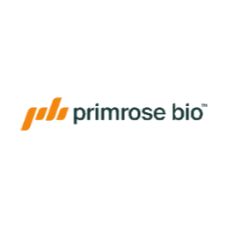
Advancements in the last few decades have been monumental and the growth industry has been led by biologics as most diseases require a comprehensive approach. The key to understanding this revolution is custom protein production as an essential step to creating new drugs. Thanks to various custom protein expression methods, researchers obtain simply the most suitable proteins for research, contributing to the discovery of new remedies.
What is Custom Protein Production?
Synthetic biology of proteins refers to the process of engineering proteins that are fit for specific uses whether in research, diagnostic or therapeutic use. As such, this process is different from standard equipment protein production and is designed for precise delivery such as protein type, structure and function. Such isolation is crucial in drug development since proteins are usually part of bioactive and novel drug products or employed as probes in target identification and assessment.
The Role of Custom Protein Expression in Drug Development
Protein expression is probably the most fundamental step in protein production, as it allows scientists to produce a particular protein in a host system such as a bacterium, yeast or mammalian cell. In drug development, this process is indispensable for:
The Rate of Target Identification and Validation
Specificity in protein expression equally enables the research fraternity to synthesise proteins that act as targets for medical therapies. Through such proteins, researchers can learn the various molecular interactions and develop compounds that help to block or stimulate certain pathways in the hope of new drug development.
Therapeutic protein producing
This is because; many of the contemporary medicines are protein in nature like monoclonal antibodies and insulin analogs. This way the production of these therapeutics requires high precision to depict the intended function without any jeopardizing effect.
Screening and Assay Development
As an aptamer, bespoke proteins play an important role in the development of robust assays employed in HTS. These assays enable the exclusion of compounds which unlikely to interact with the target protein and therefore will find applicability in deciding the potential drug candidates.
Structure-based Drug Design
Heterologous expression is especially valuable in that it permits the crystallization of target proteins for structural resolution. Having learned the three-dimensional conformation, the researchers can create drugs that will attach themselves to the target protein, thereby increasing effectiveness of the drug.
Advantages of Custom Protein Production
The customization process provides several benefits, including:
Precision: Proteins are unique in that they are developed for particular drug development requirements or specifications.
High Yield: New expression systems enhance expression for scale-up in large quantities.
Post-Translational Modifications: The relevant changes that may influence the therapeutic outcomes in large-scale protein production can be accomplished precisely in eukaryotic systems.
Budget-friendly: Costs are keys drivers of the efficient production in development of drugs since it bring the cost of drugs down.
Conclusion
Protein therapeutics production and expression have highly transformed the drug discovery research process, in that it has increased the development of targeted drugs. These processes are going to remain relevant in the future as technology continues to evolve and serve the important goals of meeting patient’s needs and providing proper healthcare for them. This way, with clients investing in their unique, highly specific protein solutions, the pharmaceutical industry is prepared for the modern-day problems that healthcare presents.